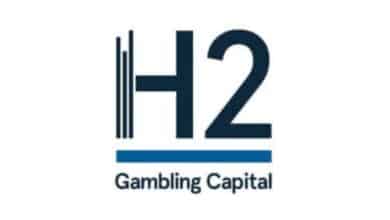Africa Risks Losing $11 Billion to Offshore Betting: PawaTech Urges Smarter Regulation at GSTA Summit

Nairobi, Kenya — June 5, 2025 At the ongoing GSTA Summit in Nairobi, which has brought together regulators, government leaders, payment providers, and gaming operators from across the continent, a strong call to action was issued by PawaTech’s Chief Public Affairs Officer, Gabriel Opoku-Asare: Africa stands to lose $11 billion in tax revenues to offshore betting platforms by 2029 if it fails to implement smart, balanced regulation.
The summit, running from June 2nd to 6th, has served as a critical forum for stakeholders across the iGaming ecosystem to examine how to protect and grow Africa’s regulated online gambling sector.
Opoku-Asare’s address drew particular attention for highlighting both the scale of the threat posed by unlicensed offshore operators and the solutions that could protect African economies and consumers.

“Revenue leakages aren’t just theoretical. They are deeply personal,” he said. “They represent clinics unbuilt, schools unfunded, and infrastructure delayed.”
The $11 Billion Leakage Problem
According to PawaTech, hundreds of millions of dollars are wagered annually across Africa through unlicensed offshore websites. These operators pay no local taxes, create no jobs, and reinvest nothing into the economies from which they extract value. Without action, this leakage is projected to reach $11 billion by 2029.
What Is Channelisation and Why It Matters
Central to Opoku-Asare’s message was the concept of channelisation—the proportion of betting activity routed through licensed, onshore operators. High channelisation means more tax revenue, safer gambling practices, and greater local reinvestment. Low channelisation leaves markets vulnerable to exploitation by unregulated offshore sites.
He stressed that technological enforcement alone—such as VPN or IP blocking—was insufficient. Instead, regulatory and tax policies must make the legal market more attractive than the black market.
High Taxes, Low Returns
A major concern raised was the impact of excessive taxation on legal operators. Opoku-Asare explained how visible player taxes and deposit fees are driving users toward unlicensed platforms.
• A 1% tax on deposits can consume up to 10% of operator revenue.
• A 4% fee may drain up to 40%, rendering legal operations unviable.
• Withholding taxes on winnings also incentivize players to bet offshore.
Despite these challenges, PawaTech has contributed over $100 million in taxes across the continent and reiterated its commitment to working within well-regulated markets.
H2 Data: 15–25% Tax Range Is the Sweet Spot
Supporting the call for smarter regulation, Opoku-Asare cited research from H2 Gambling Capital, recently published in iGaming Africa. The report forecasts the African iGaming industry could reach $22 billion in size by 2029, but only if 90% of betting activity is channelled through legal operators.
H2’s analysis warns that tax rates above 30% of Gross Gaming Revenue (GGR) render the market unprofitable and ineffective. Instead, 15–25% is identified as the optimal tax band—maximizing both tax receipts and legal market participation.
Ghana Takes the Lead
Ghana was spotlighted as a country embracing forward-thinking reform. The government has recently abolished its 10% withholding tax on player winnings and is planning to eliminate the 1% mobile money levy in 2025—moves designed to boost channelisation, support legal operators, and increase tax revenues.
A Three-Point Agenda for Reform
Opoku-Asare concluded with a clear roadmap for policymakers across Africa:
1. Tax Operators, Not Players – Remove visible customer-facing taxes.
2. Tax Revenues, Not Transactions – Avoid taxes on stakes, deposits, or withdrawals.
3. Prioritize Channelisation – Structure tax rates to encourage legal betting activity.
About PawaTech
PawaTech is a leading African iGaming technology provider, powering the betPawa brand across 17 African countries and serving over 7 million customers. With a commitment to transparency, local partnerships, and responsible growth, PawaTech is a strong advocate for regulated, sustainable gaming ecosystems on the continent.























